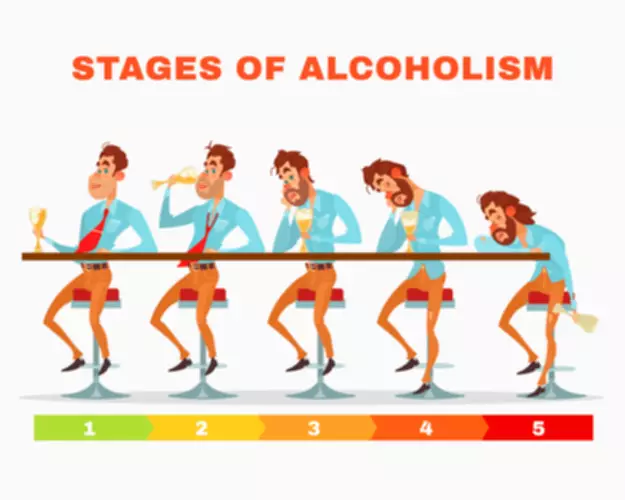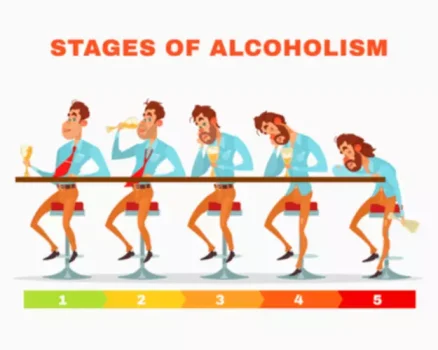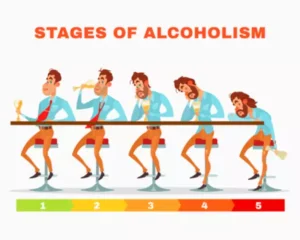
While some studies have not found an association between body mass index and alcohol use, alcohol has some significant effects on the body that can impact your metabolism and ability to lose or maintain weight. When people want to lose weight, skipping their favorite sugary foods or hitting the gym a bit more is often the first step. But since alcohol provides 7 calories per gram (compared to 4 calories/gram for carbs and protein), avoiding the booze can help reduce weight, mainly if your drink of choice contains a large volume of alcohol. The way to freedom is to change the way you think about alcohol so that you can enjoy going into any restaurant, bar, club, or party without feeling left out or deprived because you’re not drinking. As long as you use a drug-free method that also ensures that you understand the psychological aspects of alcohol addiction – these tips will help you. In addition to therapy, support groups, and self-help options, you should consider some of the medications that are available that may improve your chances of quitting alcohol successfully.

Health Benefits Of Dragon Fruit, According To Experts
An important first step is to learn more about alcohol use disorder and your treatment options. If you answer “yes” to two to three questions, your symptoms align with mild AUD. If you answer “yes” to four to five questions, your symptoms align with moderate AUD. If you answer “yes” to six or more questions, your symptoms align with severe AUD. Consult with a licensed mental health professional to further explore AUD. Women should limit their alcohol intake to no more than one drink a day while men should limit how to overcome alcoholism their alcohol consumption to no more than two drinks a day, according to the Dietary Guidelines for Americans.

Surround yourself with support
Perceived social support can play an important part in alcohol use recovery. SELF does not provide medical advice, diagnosis, or treatment. Any information published on this website or by this brand is not intended as a substitute for medical advice, and you should not take any action before consulting with a healthcare professional. Affirming intentions, knowing the reasons for quitting alcohol, and setting up the environment for success are important strategies. A person can improve their success rate by designing a plan to stop drinking and using the resources that work for them.
- Overall, stopping drinking can lead to a healthier and happier lifestyle.
- Knowing why you drink is essential, says Cyndi Turner, LCSW, LSATP, MAC, a Virginia therapist specializing in addiction treatment and alcohol moderation.
- Planning for moments of weakness is necessary to anticipate moments of vulnerability.
- In addition to feeling less anxious and having better digestion, you may notice bigger changes a few months into sobriety.
Make a plan.
- If you’re having trouble doing the same things you used to do, try new hobbies to fill your time.
- Your health care provider or counselor can suggest a support group.
- Talk with a healthcare professional if you’re concerned you may experience detox symptoms when quitting drinking or cutting back.
- It is normal and even expected for people to try to quit at least once before achieving sobriety.
- Instead of aiming for complete abstinence, for instance, aim to drink fewer than seven days a week.
- Instead, I’ve fallen back on awkward half-truths or accepting the damn glass of wine (and begrudgingly sipping).
Alcohol recovery is a process—one that often involves setbacks. A drinking relapse doesn’t mean you’re a failure or that you’ll never be able to reach your goal. Each drinking relapse is an opportunity to learn and recommit to sobriety, so you’ll be less likely to relapse in the future. When you’re craving alcohol, there’s a tendency to remember the positive effects of Twelve-step program drinking and forget the negatives.
- “Try doing a ‘dry’ month like Dry January, Go Dry for July or Sober October,” says Moore.
- Keep alcohol away by removing alcohol from your home, avoiding social situations where drinking is common, and limiting exposure to places that encourage alcohol consumption.
- Maybe you’ve tried to overcome your addiction but have relapsed and feel like giving up.
- They can encourage you to stay sober and help you findother healthy ways to have fun.
Alcoholic support groups, such as Alcoholics Anonymous, provide free help for people struggling to quit drinking. Peoplewith minor alcohol problems or people who have already received treatment for moderate or severe alcohol problems usuallybenefit from AA. Similarly, some alcoholics may be able to stop drinking with the help of Alcoholics Anonymous. Once you know how much of a role alcohol plays in your life, you can figure out how to quit drinking. Things that work for some people don’t necessarily work for others.

Removing triggers helps support the goal of stopping drinking. Once urges and cravings are well-managed, a person may consider reconnecting with certain individuals. A person can use various strategies to help them stop drinking alcohol. https://ecosoberhouse.com/ It is helpful for individuals to understand their motivations and goals behind it.
How to Actually Quit Drinking, for Now or Forever

Having a personalized plan can also increase the success rate of stopping drinking. Identifying triggers is important for quitting alcohol as they encompass specific emotions, situations, or environments that prompt the desire to drink. The process entails understanding these patterns and mapping out the circumstances contributing to alcohol consumption. Once identified, individuals avoid or develop strategies to manage these triggers. Quitting alcohol yields numerous health benefits, covering minimized risk of liver disease, boosted cardiovascular health, and better mental well-being. Between 60% and 90% of individuals who consume over 60 grams (2.11 ounces) of alcohol daily derive hepatic steatosis.